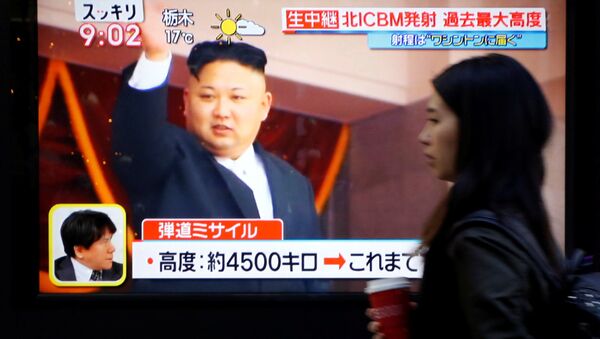"Our position on the problems of the Korean Peninsula is direct, frank and open, we have voiced it many times, including through Russian President Vladimir Putin. We believe that the main task is preventing an armed conflict there, which will have catastrophic consequences, first of all, for the countries that are located there. This is both the Republic of Korea and Japan. Let us not forget that both China and Russia also practically share borders with North Korea," Russian Foreign Minister Sergei Lavrov said at a joint press conference with his Italian counterpart, Angelino Alfano.
At the same time, the foreign minister stated that Russia regrets that the United States is provoking North Korea by announcing large-scale unscheduled drills in the region.
"If someone really wants to use force to 'destroy North Korea,' as the US ambassador to the United Nations said — then I think it is playing with fire, it is a big mistake. We will do everything to prevent this from happening, and promote solving the issue exclusively by peaceful political and diplomatic means," Lavrov told reporters.
According to Lavrov, Moscow is "in a very close contact with the US representatives who are dealing with [tensions on] the Korean peninsula."
The statement comes in the wake of the latest North Korean missile launch that was conducted on November 28, with the missile flying 950 kilometers (590 miles) and reaching an altitude of 4,475 kilometers, after which the missile fell into the Sea of Japan, within the Japanese exclusive economic zone. Pyongyang later announced in an official statement that this was an intercontinental ballistic missile Hwasong-15, which is capable of reaching targets throughout the United States.
Pressure on RT in US After Forced Registration Under FARA
According to the foreign minister, Moscow considers it unacceptable to strip Russia's RT broadcaster of accreditation in the US Congress, but would not want to join the "bans race."
"And I can not now say what our answer will be, but I very much would not want to join the ban race, because of that the mass media will suffer, as well as those people who receive information from the media about the events in the world," he said at the press conference.
Following the move slammed by the Russian Embassy in Washington as a violation of the freedom of speech, the Russian lower house, the State Duma, proposed on Friday to ban entry for all 20 US media outlets accredited by the Russian Foreign Ministry, without any exceptions.
On the Middle Eastern Crises
Commenting on the situation in the Middle East, Lavrov said that Russia was working with all parties engaged in conflicts in Syria and Libya without trying to turn them against each other.
"In any conflict, we are guided by the need to involve all possible parties in the dialogue. We have never supported attempts to isolate somebody. We did not support that in Syria where in 2011 our western colleagues said that they would not talk to the legitimate government. We did not support the attempts in Libya to isolate the eastern part of the country… I believe that this principle can be used in any other conflict… We are always trying to be a part of the team and never trying to turn one party against another one in any country," Lavrov said.
Lavrov noted, apparently referring to media reports saying that the US forces will stay in Syria after the anti-terrorist operation is over, that Russia expected foreign forces that were illegally remaining in Syria to leave the country after the Daesh defeat.
According to minister, the US 55-kilometer (34-mile) radius zone of control in Syria's al-Tanf is absolutely unnecessary.
"We have to be very careful not to allow these de-escalation areas to become a step towards splitting Syria into various parts. Unfortunately, the Americans unilaterally created a 55-kilometer-radius zone in al-Tanf, which we believe is absolutely unnecessary," Lavrov said.



